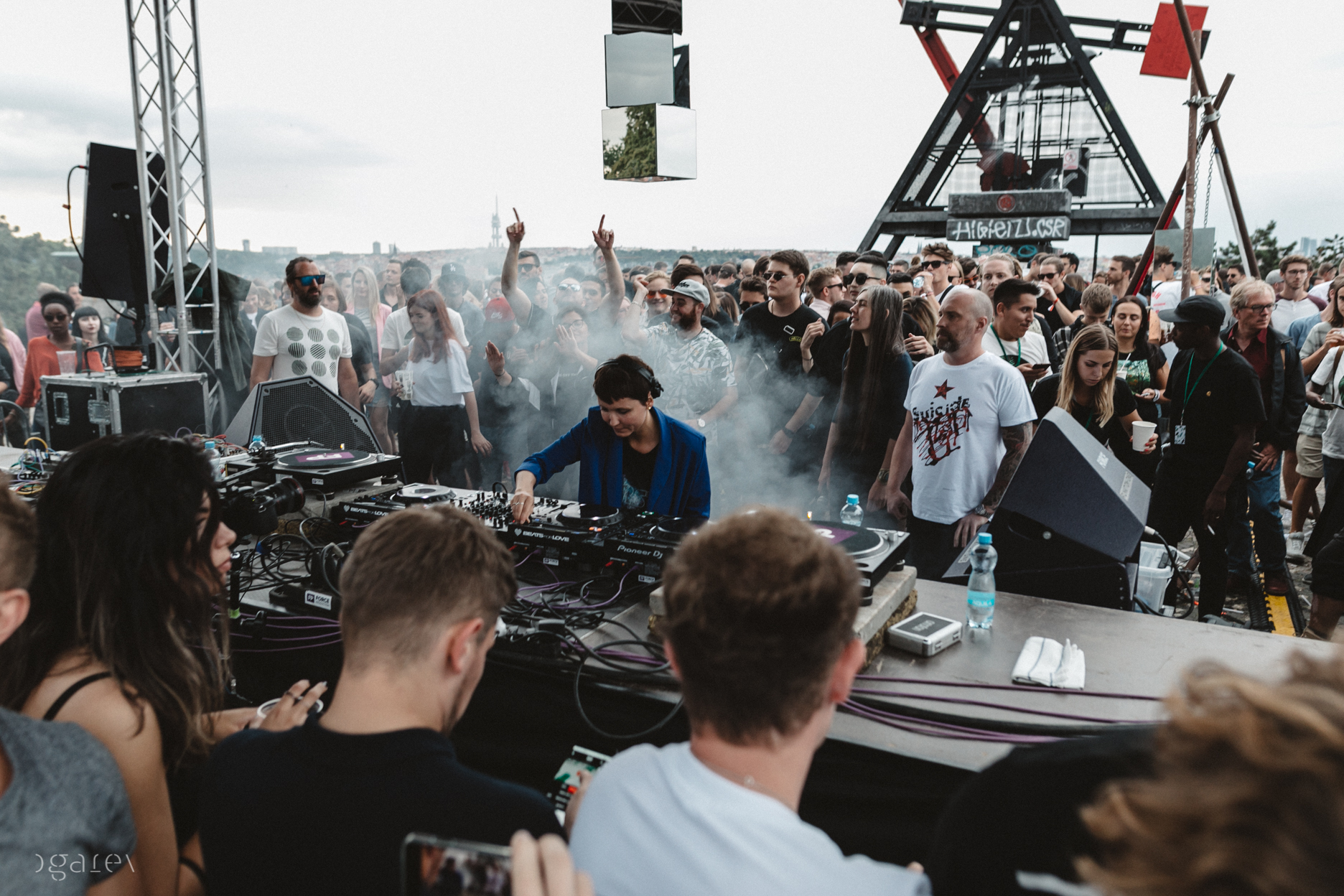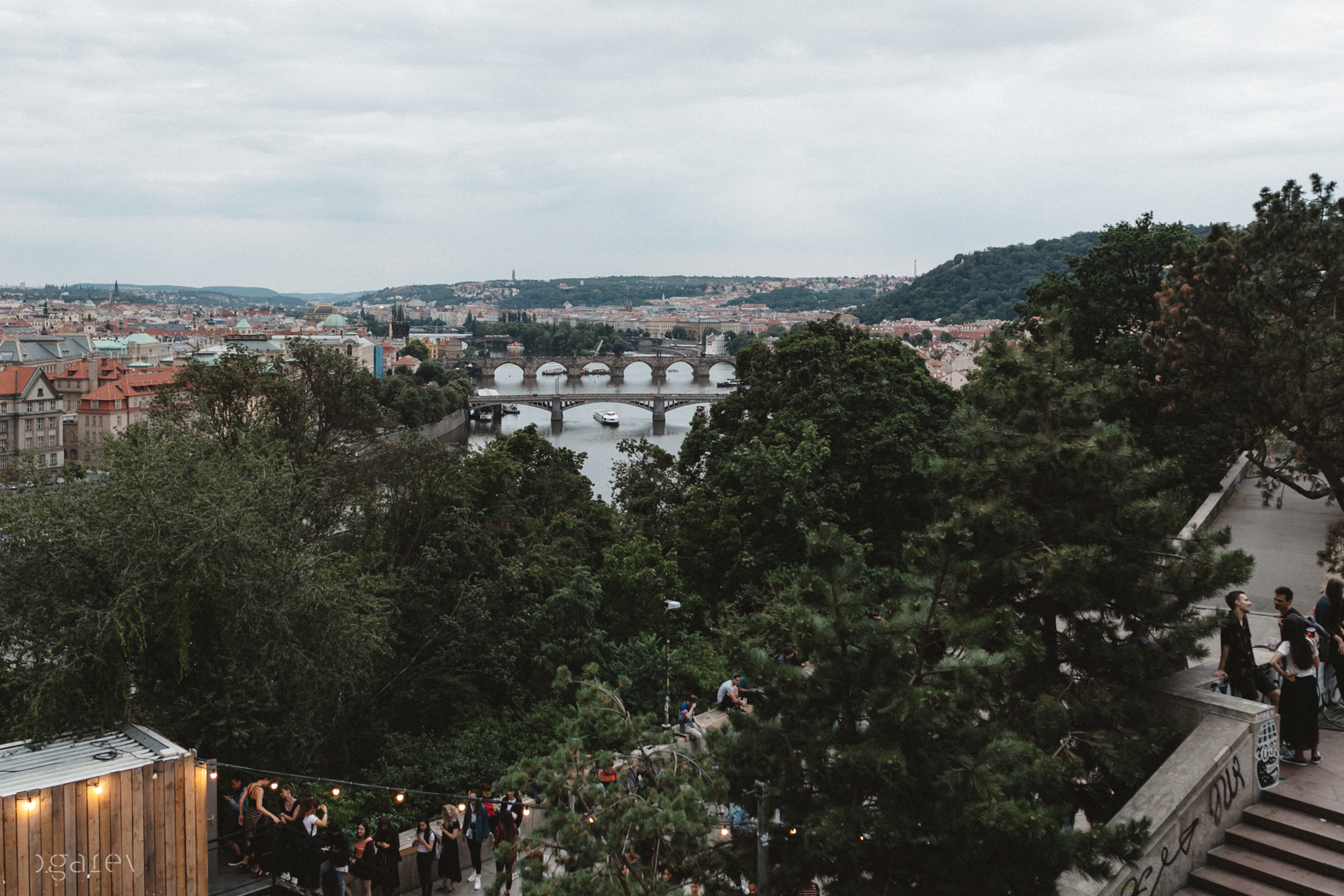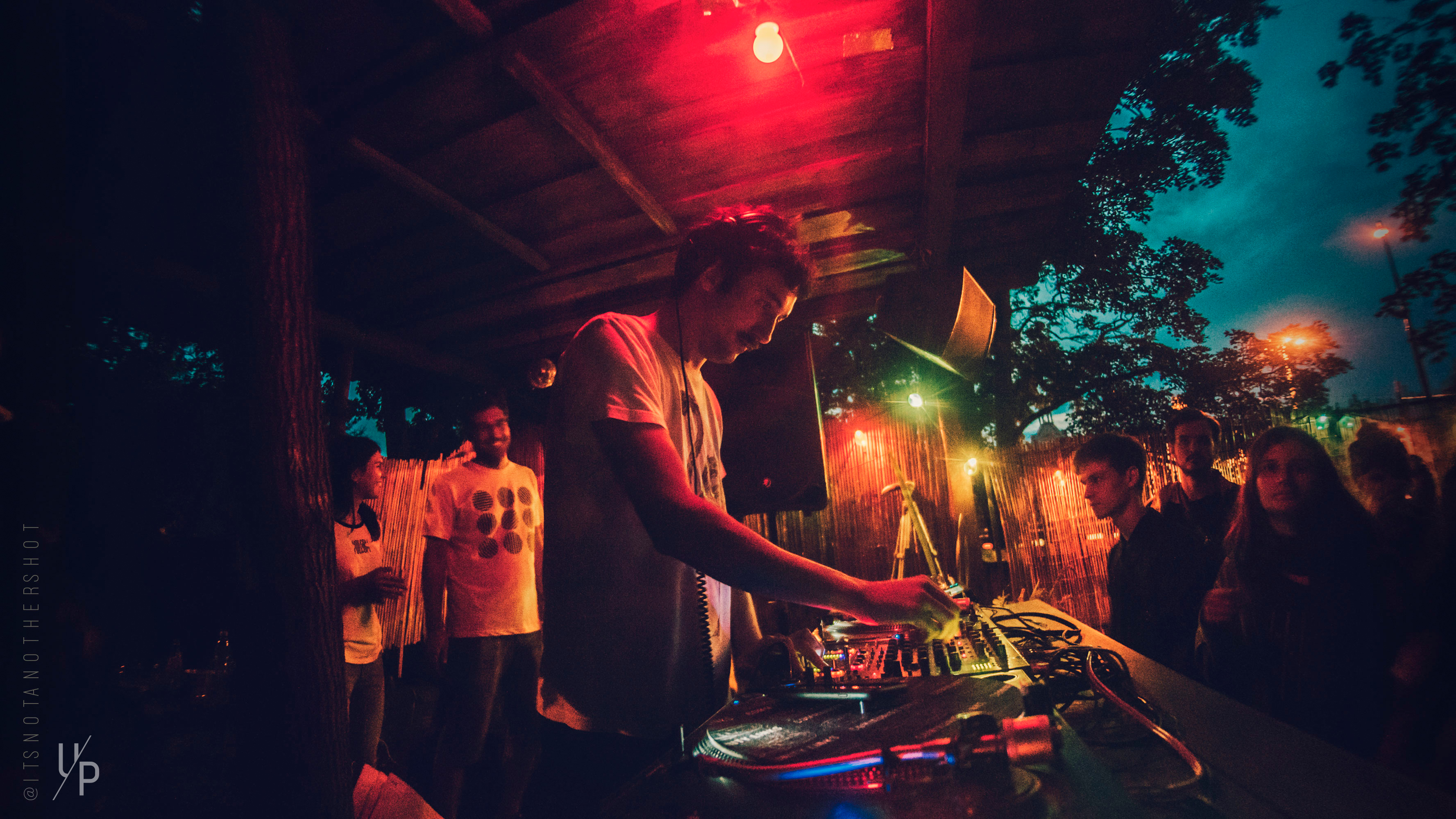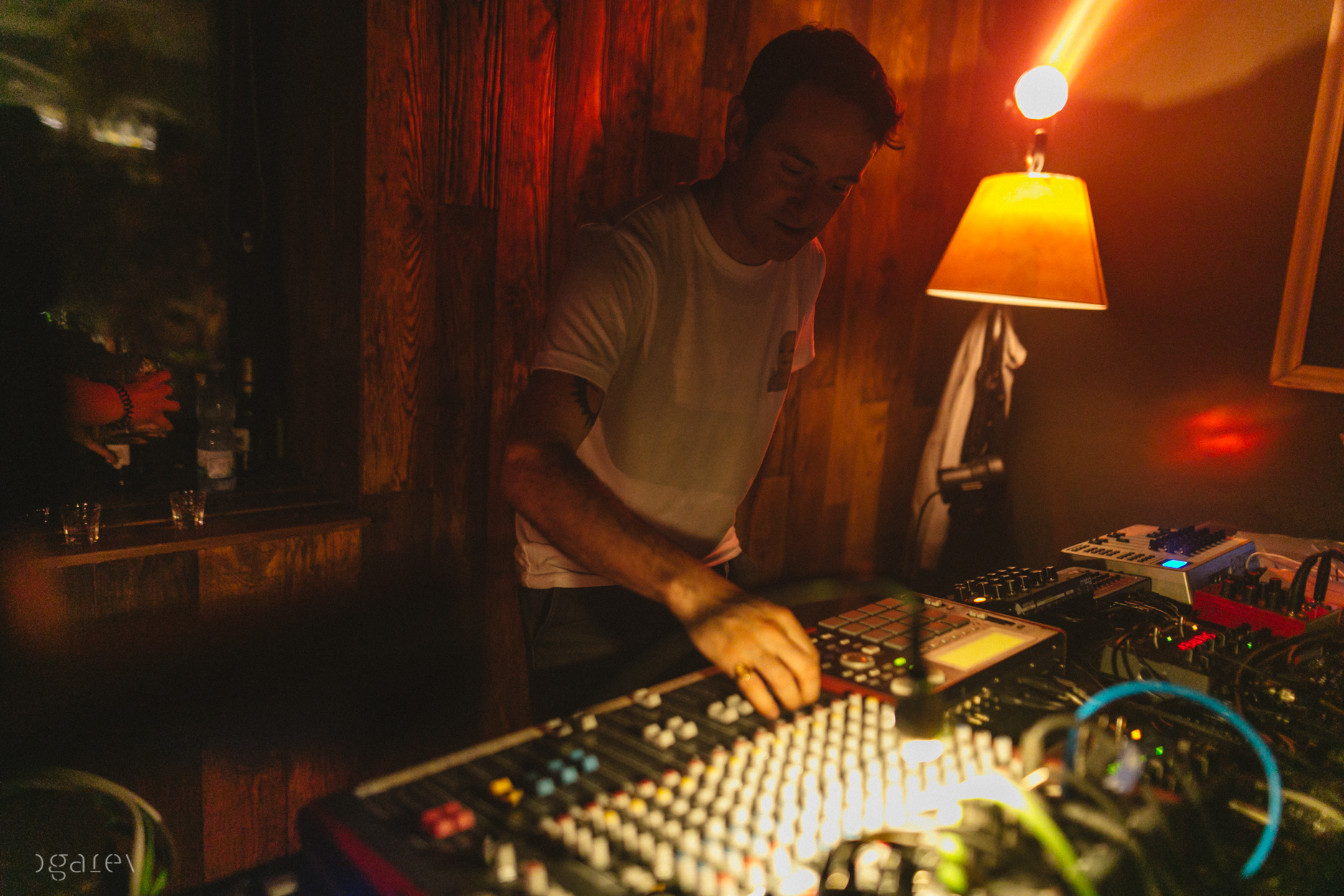Review: UP Festival 2019
Teething problems in Prague.
Ask some electronic music fans across Europe for their favorite festivals of 2018, and it’s likely that Prague’s UP Festival will have quite a few votes. Not only is there the backdrop, a picturesque city brimming with history and culture, but the lineup, too: well-curated, if not particularly innovative, it brought some of the finest names in stripped-back house and techno (speaking broadly), many of them for the first time. It felt a little like Club der Visionaere on the road, with a support network of some straight-up techno names. In the after-math, word spread of the inaugural event’s success, backed up with videos of that Barac set and Villalobos’ first appearance in the Czech Republic. Expectations are always tempered for a first editions, but this only made last year’s UP more memorable.
Any teething problems that should have arisen were saved for the second year. I arrived in Prague full of excitement, ready to see some great music (although there could have been more diversity), eat some delicious food, and explore a city that I hadn’t had the pleasure of visiting before, but circumstances, some of which were beyond the organisers’ control, precluded much of this.
Before I begin with the main event, which took place on the Saturday and Sunday, I’ll talk about the pre-festival activities, running from Wednesday to Friday. It all began with some seminars, on which Maayan Nidam and Dana Ruh spoke, although I wasn’t able to attend. I heard positive reports, and, unlike at so many music events, they were well-attended, with 30 or so locals arriving to check out the duo’s musings on battling depression and managing disappointment in touring artists respectively.
Credit must be given to the event for running these, supporting the local scene which has long been bereft of anything of this nature in the realm of electronic music. Local artists and aspiring music industry professionals, of which there are many in Prague, can learn a lot from the likes of Ruh and Nidam, both of whom boast a wealth of experience when it comes to life as a DJ-producer. A festival’s footprint should always transcend the hazy memories of the morning after, and these programmes provide tremendous value for burgeoning music communities.


The local support continued the next day, with a Boiler Room session atop Letná hill, overlooking the city’s main sights. It was a memorable venue and free to attend, which gave the locals a chance to see the Andrew James Gustav and Magda perform for an hour each, joined by rising local artists Silhouette and Windowlickerz (live). I landed too late to catch the latter two, but Gustav and Magda, sure-fire musical delights, impressed in what felt like a curtain-raiser to this year’s UP. Headliner James Ruskin, undoubtedly a skilled producer and curator, dampened the mood with set of drab techno that felt like he’d just left the kick-drum on loop (a strange addition to the lineup, apparently driven by Boiler Room’s insistence on a straight-up techno act), but this strangely seemed to resonate with an audience dominated by locals.
The event finished finished at 10pm, and was followed by another at Vlkova26 with some local DJs, which I didn’t attend. On Friday, I heard there was a tour of an art gallery, but it certainly wasn’t communicated widely, and it felt strange that so little was programmed until around 4pm. I’m aware that the main event took place over the weekend only, but by hosting the workshops and the Boiler Room earlier in the week, it felt like the festival itself had already started, only for momentum to be lost by this period of limbo that could have been filled with more workshops, a recommended tour around Prague, or something to bring those in attendance together.


Nonetheless, the Friday night was fun, hosted at Wildt Bar, close to the hotel where most people were staying. It’s an intimate space with an outdoor garden where Clovis played. Later that night, the party went indoors, and this is when the festival felt like it began. Local DJ Kirill Astra, a resident of Wildt, performed first, maintaining a high energy by chopping between tracks; not once did it feel like he let a track play out, which actually became frustrating after an hour or so. It seemed to go down well with everyone else, the majority of whom stayed to watch The Mole’s live set.
I’ve long admired The Mole’s productions, but this was the first time I’d see him play live, pairing a heap of analog gear with a turntable. Not only does the Canadian have one of the finest aliases, but his live show must sit up there to; mixing sexy, soulful vocals with a deep and rolling bassline, he delivered one of the sets of the weekend, keeping the at-once-thinning crowd moving from start to finish. Clovis returned to the decks after, but I swerved to get the rest for the main event, which was fast incoming.

Much of my excitement about UP stemmed from the venue, which I’d heard was really a beautiful green park complemented by pleasant decorations. That particular venue was not available this year, because of noise complaints from 2018, but I was expecting something similar for two reasons: Prague is not short of a park, and the theme for this 2019 edition was Harmony in Nature.
Unfortunately, the second of my arrival, this felt like a prank: I don’t wish to criticise unnecessarily, but the site can be best described as a car park, located 15 minutes drive from the main hotel, on the outskirts of the city. It wasn’t harmonious and there certainly wasn’t any nature, aside from the rather sad-looking imported plants behind the main stage. Instead of trees and shrubbery, there were lorries and Škoda cars. My understanding is that the crew behind the event had paid for the space to be decorated and the contractor hadn’t delivered, but converting this venue into one fit for a first-class festival feels like a fool’s errand. Granted, the weather, a murky grey with intermittent showers, didn’t do the organisers any favours, but this was an oversight not beyond their control.
I think my frustration was also added to by the fact that I’ve had the pleasure of visiting such brilliant events in the past. I look at Europe’s leading electronic music events—Dekmantel, Houghton, Waking Life, etc.—and they all pay tremendous attention to the setting; it’s about so much more than music, which is invariably well-curated and programmed. It’s beyond me why anyone would think that throwing an event in a car-park like this is acceptable; more thought and effort is required if UP is to meet the standards required of a successful festival, destination or otherwise.
The music on the Saturday was good, especially Dorian Paic, who played on the UP Stage, and then Cristi Cons & DeWalta, who played the XLR8R stage to a reasonably full crowd, even though the rest of the site was almost entirely empty. The music was never going to be stand-out because the sense of frustration still lingered, but the DJs certainly delivered.
Adding to organisers’ woes was Ricardo Villalobos’ absence. Despite a strong lineup, I sensed that many people were anticipating the Chilean’s set, more so after 2018’s show, but his flight was delayed, and he couldn’t get his bags off the plane in time to make it worthwhile for him to drive down.
Reshuffling the programming, the organisers closed the XLR8R stage and moved everyone to the UP Stage, where Archie Hamilton was performing a high-energy set of groovy house. It was the most festival-moment of the festival, as the crowd applauded each track, and were apparently saddened to see him sign off. Maayan Nidam closed the stage by playing live; it was excellent, although wrongly scheduled: Nidam’s work is intelligent and non-conformist, and not really one to move the expectant masses, even more so after the four-to-the-floor selections of Hamilton. That being said, it was among the best music we’d heard up to that point.
Playing later in the evening, from 2-4am inside the industrial warehouse space, was Marcel Dettmann, but I went home because I wanted to be awake for Sonja Moonear, who was scheduled for 10am, primarily because she was already booked and this was the only time she could play (which begs the question why the organisers didn’t book someone else who could actually perform according to their scheduling).
I can’t really think of too many situations where you’d have Moonear playing in front of so few people. It’s a real shame and felt a little bit surreal, like you were expecting a whole heap of people to turn up suddenly, as if they’d mistakenly Uber-ed to the wrong address. Moonear also had to play digital because the sound technician had not accurately levelled the table. It didn’t really matter in the end, but it added to the feeling that someone in production hadn’t done their job.
It’s easy to place this down to the weather, which again wasn’t great, but I think a lot of it was down to programming. Starting Moonear at 10, with a small gap between that at the end of the evening session, makes little sense. You either keep the event going or give people enough time to really break, but a small gap of a few hours means another limbo. It’s not fun to wait around in a car park for two hours, especially one so bare of amenities.
Zendid and Jessica Diaz closed out the stage, which was the only one going because there weren’t enough people to fill two, or even one really. Andrew James Gustav was supposed to play, but he was pushed back to the after-party, brought forward to 6pm from 10pm, two hours after Zendid’s end.
I didn’t attend the after-party, but I heard it was actually the best part of the festival. Hosted another one of Prague’s intimate club spaces, music came from Margaret Dygas, Lamache, John Dimas, Dana Ruh, and Digby, who was the standout. It was still going when I left the hotel for my flight, at 9am on Monday.

UP 2019 may not have been the most memorable of festivals, certainly not for the right reasons, but it’s important to look at the bigger picture.
2018 was an undeniable success, and highlighted the eligibility of Prague for an annual electronic music event. It’s only three hours from Berlin and easily accessible from almost all of Europe, not to mention that it’s extremely affordable and a must-see city on its own.
In an increasingly saturated festival market, those which do succeed need not only to do all things well, but also to have something different, a unique selling point, if you will. UP, with its connections in Prague, is certainly well-positioned to be the leader in this market, but it needs to get the foundations right; finding a generic space and booking some DJs just doesn’t cut it anymore. That being said, if the organisers do put the thought in, then there’s no reason why it cannot flourish.

